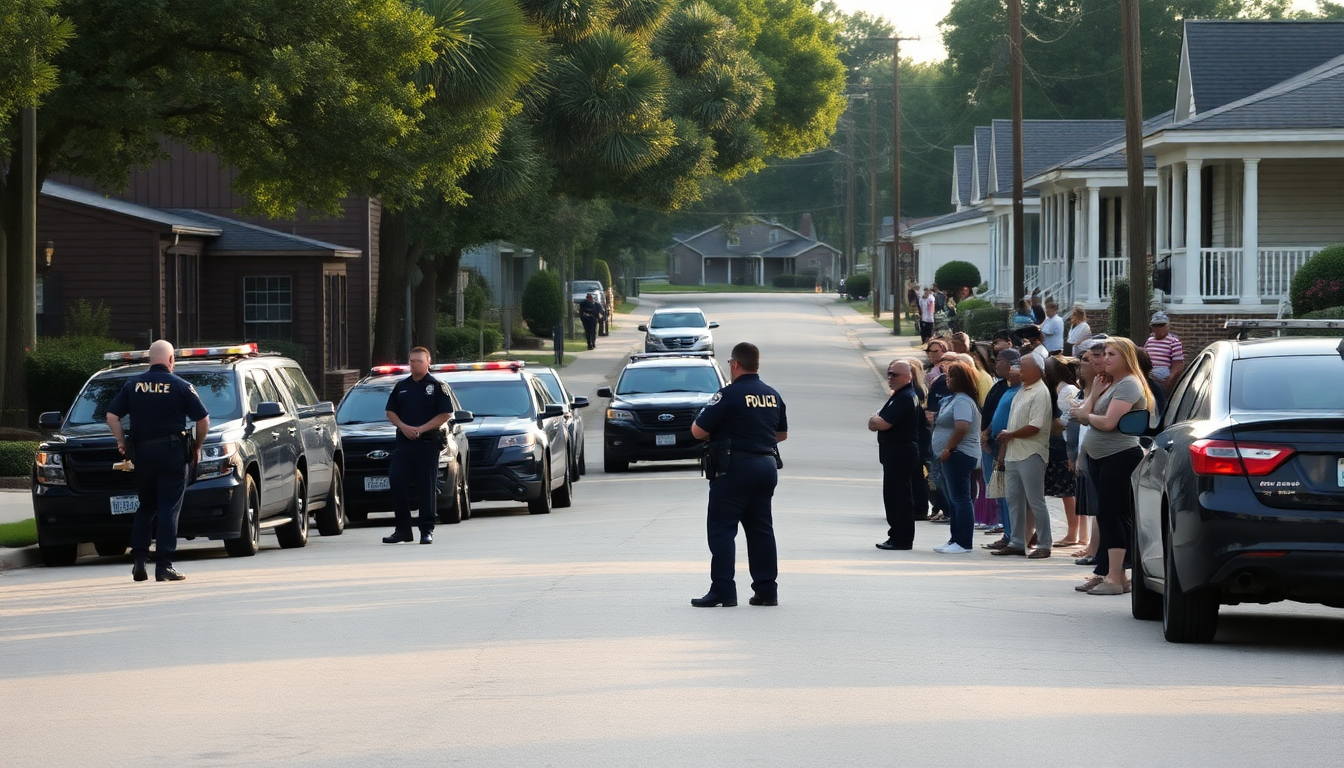Table of Contents
Recent developments in law enforcement are shining a spotlight on immigration enforcement operations across the United States, and Louisiana is at the forefront. A recent joint operation conducted by U.S. Immigration and Customs Enforcement (ICE) alongside various federal and state agencies has drawn attention to ongoing efforts aimed at tackling unauthorized employment and related criminal activities. But what does this mean for local communities? In this article, we’ll break down the implications of these operations, the nature of the arrests made, and the broader context of immigration enforcement in our nation.
The Operational Framework of Recent Law Enforcement Actions
On June 17th, a coordinated operation at the Delta Downs Racetrack in Vinton, Louisiana, led to the arrest of over 80 individuals for illegal immigration. This initiative was based on intelligence regarding unauthorized employment within the racetrack’s stables and reflects a broader strategy focused on enforcing immigration laws and curbing illegal employment practices. This operation showcased a collaborative effort that included not just ICE, but also the Border Patrol, Louisiana State Police, the FBI, and the Bureau of Alcohol, Tobacco, Firearms and Explosives. It’s clear that immigration enforcement has become a multifaceted challenge.
Interestingly, this operation followed a pause in immigration arrests at various businesses, signaling a renewed emphasis on compliance with immigration regulations. Eric DeLaune, the Special Agent in Charge of ICE’s Homeland Security Investigations in New Orleans, pointed out that these investigations often unveil additional criminal activities such as document fraud, money laundering, and even human trafficking. Addressing these issues is crucial for enhancing public safety, wouldn’t you agree?
On the flip side, recent protests against ICE activities in major cities like Los Angeles and Portland serve as a reminder of the contentious nature of immigration enforcement in the U.S. These protests, some escalating into riots, highlight a significant community backlash against what many perceive as heavy-handed tactics by law enforcement. It’s essential to understand these community perspectives, as they shape the narrative surrounding these operations.
Community Safety and the Consequences of Enforcement Actions
The implications of these enforcement operations extend far beyond the arrests themselves. While the primary focus tends to be on immigration violations, the identification of individuals with criminal records raises serious concerns about community safety. Take, for instance, the case of Enrique Gonzalez Moreno, a repeat offender with convictions for driving under the influence and drug possession. Such instances provoke discussions about the delicate balance between enforcing immigration laws and ensuring public safety.
ICE’s strategy aims to address unauthorized employment while also identifying and removing individuals who pose threats to communities. The agency emphasizes its commitment to enhancing safety by focusing on not just those who enter the country illegally, but also those involved in related criminal activities. This dual approach seeks to reassure local residents that law enforcement is actively working to eliminate threats to their safety. How effective do you think this strategy is in practice?
Moreover, these operations hold employers accountable for hiring unauthorized workers, a vital step toward reducing illegal employment practices that can exploit vulnerable populations. By ensuring compliance with labor laws, we can foster a fair work environment for everyone.
Looking Ahead: The Future of Immigration Enforcement
As we reflect on the recent actions taken by law enforcement, it’s crucial to consider the potential ramifications for the future of immigration enforcement in the United States. The ongoing tensions between enforcement agencies and community advocates are likely to influence policy discussions in the coming months. The rising frequency of protests against ICE operations certainly indicates a growing demand for reform and a reevaluation of existing immigration policies. What changes do you think are necessary?
Furthermore, as law enforcement continues to adapt its strategies in response to community feedback and shifting political climates, we can expect a heightened focus on collaboration with local agencies. This cooperative approach might lead to more nuanced enforcement strategies that take community perspectives into account while still addressing the need to uphold immigration laws.
In conclusion, the recent immigration enforcement operations in Louisiana illuminate the complexities surrounding law enforcement, community safety, and immigration policy. As these dynamics evolve, it will be vital for all stakeholders to engage in meaningful dialogue to strike a balance that ensures public safety while respecting the rights and concerns of local communities. Are we ready for that conversation?


